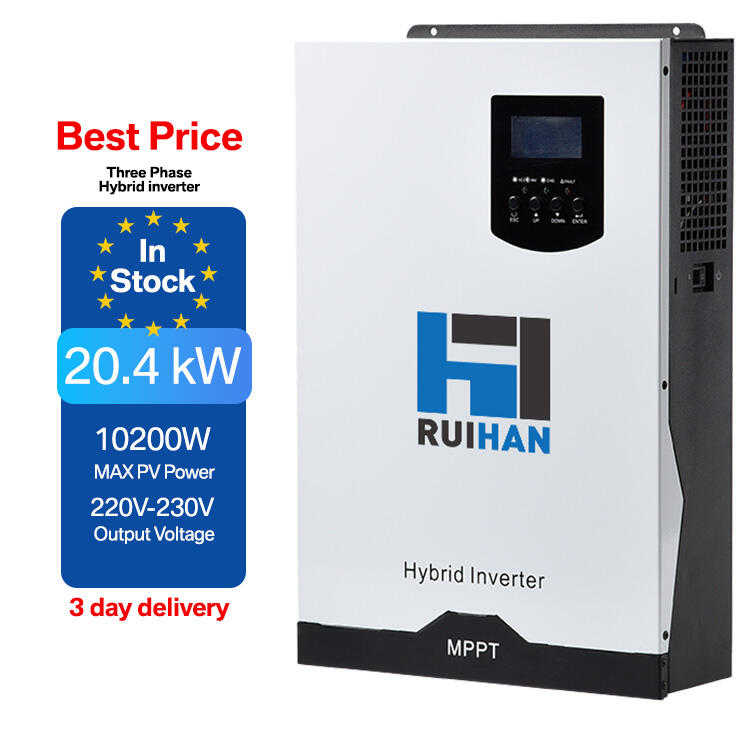Leading Provider of Photovoltaic Inverters and Solar Solutions
Ruihan New Energy Company, established in 2018, has evolved into a comprehensive solar solution provider, specializing in the design and manufacture of photovoltaic inverters, solar panels, energy storage systems, mobile power, and vehicle inverters. With 8 years of self-developed technology, we are committed to delivering high-quality products that meet the diverse needs of our international partners. Our photovoltaic inverters are engineered for efficiency, reliability, and performance, making them the preferred choice for solar energy solutions worldwide.
Get A Quote


